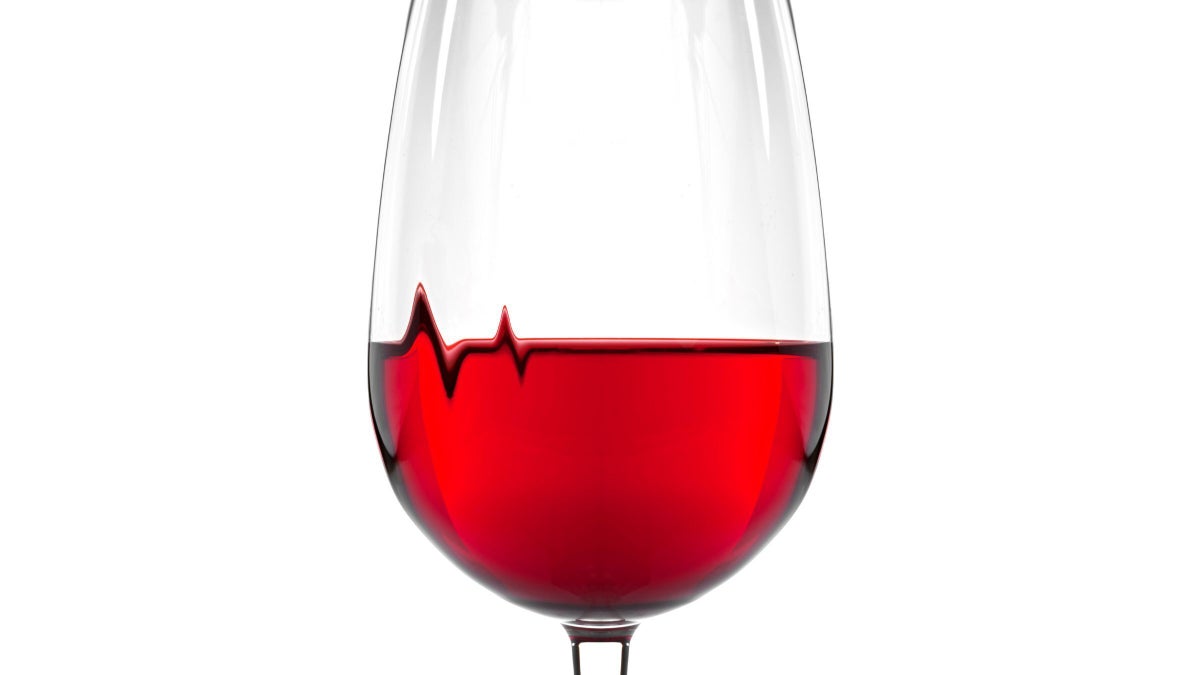No products in the cart.
Outdoor Adventure
Alcohol Can Tank HRV, Resting Heart Rate, and Sleep
Get full access to Outside Learn, our online education hub featuring in-depth fitness, nutrition, and adventure courses and more than 2,000 instructional videos when you
sign up for Outside+.
It’s no secret that alcohol inhibits overall health, but for runners and other athletes, the risks are even more adverse. Drinking alcohol negatively affects your heart rate variability (or HRV) and heart rate, hinders sleep, can lower testosterone, impair balance and coordination, decrease muscular strength, and impact bone health—which increases the risk of sports-related injuries. Simply put: you shouldn’t plan to just “sweat it out” post-drinking.
RELATED: A Nutritionist Shares What A Month of No Alcohol Did to His Body
How long does it take an athlete to recover from drinking alcohol?
Varying amounts or types of alcohol tend to affect people differently. But generally speaking, the more that’s consumed, the greater the psychological and physiological consequences. It takes the liver at least one hour to remove each unit of alcohol from the body, and the liver may struggle to remove all the alcohol overnight.
Alcohol affects the body in many ways, including excessive thirst as a result of alcohol’s diuretic effect, and diarrhea and indigestion as the alcohol wreaks havoc on the digestive system and increases stomach acid production.
What about your heart?
Alcohol’s effect on heart rate and HRV
Heart rate and heart rate variability (HRV) are two useful metrics for athletes to monitor in order to get a baseline of nervous system activity and gauge how the body is capable of adapting to different situations. Consuming alcohol is shown to cause HRV to drop, and resting heart rate to rise. A normal resting heart rate for adults is between 60 and 100 beats per minute, and researchers in one study found that consuming just one standard drink elevated participants’ heart rates by five beats per minute. Another analysis by the fitness tracking company WHOOP reported that respondents’ HRV dropped by an average of 7 milliseconds and their resting heart rate increased by an average of three beats per minute after one drink.
“Greater alcohol consumption is associated with more pronounced increases in heart rate,” said UK-based exercise physiologist Tom Cowan. “This may be amplified if the alcohol is accompanied by a mixer, which contains caffeine such as an energy drink or in a cocktail like an Espresso Martini, as caffeine also increases heart rate.”
Why is monitoring HRV and heart rate important?
Resting heart rate has long been a reliable tool for athletes to monitor, but HRV has now become increasingly popular as a recovery and training metric—both in general fitness trackers and for athletes. An HRV device measures the interval between each of your heart beats, in milliseconds (m/s), over a specific period of time. More variability between beats gives you a higher score—and, in general, means you’re fitter and more recovered and ready to go. HRV tends to drop when a person is tired, stressed, sick, not recovered from a previous day’s workout, or after a night of drinking.
RELATED: Using Heart Rate Variability to Get the Most From Your Training
“A higher HRV generally equals better fitness,” said Harry Glorikian, healthcare expert and author of The Future You: How Artificial Intelligence Can Help You Get Healthier, Stress Less, and Live Longer. But it’s important for each person to establish an individual baseline before analyzing changes in their HRV, he noted, because it’s a highly individualized metric. What is normal for you might not be normal for someone else. “The first time I saw my HRV numbers, I started to look for ways to compare it to others. What I quickly found was that my HRV was specific to me and that changes that I made in my life affected my HRV and those changes do not apply universally to others.” His takeaway? Focus on implementing your own changes when it comes to diet and exercise, and watch as your HRV increases and your energy levels soar.
Start by establishing a baseline HRV and resting heart rate every morning for a least one to two weeks, using your fitness tracker or app. Then you can note differences.
It’s also important to note that while, in general, higher HRV correlates with better fitness and recovery and lower resting heart rate tends to mean an individual is more recovered and rested, this is not always the case. There can be individual circumstances that go against this general rule and extremely fit athletes can have inverse effects. For instance, the resting heart rate could become suppressed from extreme fatigue and overtraining.
“Once you start to utilize this measure, keep in mind that training is not the sole influencer of this metric. Work stress, poor sleep, stressful family life, poor nutrition, and more can negatively affect HRV,” he said.
Why alcohol can impact sleep—and HRV
Poor sleep, as well as stress (physical or psychological), can reduce HRV. A restful night’s sleep helps the body to restore itself, repair cells and tissue, and prepare again for optimal performance. So what happens after a few evening glasses of wine?
“Alcohol disrupts sleep cycles and since it is a diuretic, it may lead to you waking up to go to the toilet frequently during the night,” said Cowan. “This leads to a reduction in sleep quality, has negative impacts on recovery, and can result in lower heart rate variability. Alcohol is also often consumed at social gatherings and parties that extend into the night or the early hours of the morning, likely affecting sleep duration too, leading to inadequate recovery.”
Source link

